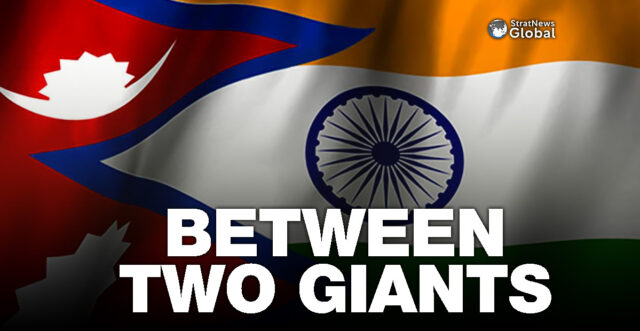“You have to understand our location vis a vis the kingdom of the north, China, and the kingdom of the south, India.”
That was Nepal’s King Prithvi Narayan Shah, who in the 18th century laid the foundations of what is modern day Nepal. He had recognised so far back that the focus of Nepal’s foreign policy would always be about balancing itself between these two giants, said Lt Gen Shokin Chauhan, former DG Assam Rifles who was on The Gist talking about his book Bridging Borders.
The book which was in the writing for nearly five years, draws from Chauhan’s Ph.D thesis and his own background as an army officer commissioned into the Gurkha Rifles. In that capacity, he visited Nepal to hold recruitment camps, eventually serving in the Indian mission in Kathmandu as defence attache.
While the border with India is open, as we in India see it, for Nepal it underscores the point that it is a landlocked nation.
“The people of Nepal have always been very insular, and insecure in thought. So insecure and insular. It creates problems in their understanding of larger issues,” Chauhan says.
And here’s another point which may explain the growing Nepal-China relationship.
“After India’s loss to China in 1962, Nepal realised it cannot be protected by China and therefore started to slowly move, balancing her relationship with China. Nepal is moving farther and farther to balance it since she is very close to us.”
The interesting point here is China played along but kept a low profile, and its policy underscored support for the monarchy even when there was a full blown insurgency by Maoist guerrillas led by Prachanda, currently the prime minister.
“What I warn the political leaders of Nepal is that if you go to that side, you have no place to come back. This is something they realise deep down. They’re scared but they are still playing this game because they have always played this game, besides India is an easy target.”
Chauhan however draws a distinction between urban and rural Nepal. Cities like Kathmandu are politically aware and politicians want to be noticed, and India baiting is a convenient way of getting noticed. Rural areas are different, this is where thousands of ex-Indian Army Gurkha soldiers live, where 18 Indian Army pension camps operate and the regard for this country is evident.
Chauhan also faults the Indian establishment for not being able to tap into that goodwill, and for not seeing the ex-servicemen as a huge pro-India lobby. Perhaps India believes they could be seen as a fifth column, but the British have close ties to their Gurkha ex-servicemen (even though they recruit only 100 a year)
“The British have created interest groups, alumni associations, organisations that meet frequently and interact,” says Chauhan, “We can do the same tapping into the army public school alumni groups. Nepal is not an enemy so why this sensitivity.”
On the Kalapani issue, he called for more sensitivity from India.
“We are much bigger, a gesture would mean a lot to them. We’re a much bigger country with a much bigger heart.”
As he pointed out, “We can’t afford inimical elements there, you need goodwill there. Let me put it this way, there are no geographical obstacles to prevent China from coming down (into Nepal) and then Nepal will become impossible to avoid.”
Thirty eight years in journalism, widely travelled, history buff with a preference for Old Monk Rum. Current interest/focus spans China, Technology and Trade. Recent reads: Steven Colls Directorate S and Alexander Frater's Chasing the Monsoon. Netflix/Prime video junkie. Loves animal videos on Facebook. Reluctant tweeter.





